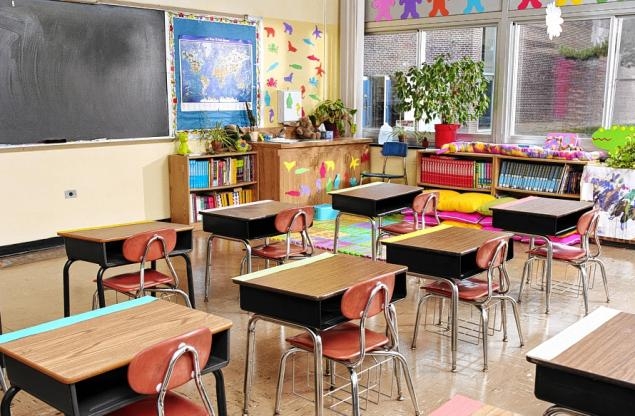
Classroom Assessments: the Best Report Card Parents Can Get
Elementary teachers focus on doing what is best for their students. That is why many teachers have reservations about the wide-scale use of standardized tests which are mandated by the government of Ontario.
EQAO Established
In 1996, the government established the Education Quality and Accountability Office (EQAO) to design new tests for grades 3, 6, 9 and 10 in reading, writing and mathematics; manage the administration of these tests; report results to the public; and collect data to help determine the effectiveness of Ontario’s education system.
Parents want to know how their children are doing at school, but do the EQAO tests give them the answers they are looking for?
What Are Teachers Concerned About?
As elementary teachers, we feel strongly that standardized tests such as the EQAO’s grade 3 and 6 assessments do not give parents a true picture of their child’s progress. There are many reasons for this.
Students are often confused and experience a great deal of stress due to the inflexible schedule and abnormal classroom environment. The tests therefore cannot be a realistic measure of a child’s overall achievement. A more realistic indicator is what happens on a daily basis in classrooms across Ontario. Here students learn more about life, their relationships with others, and the environment than a test given once a year can ever measure.
The tests do not assess the whole child or the whole curriculum. They provide only one assessment, at one point in time. As well, test data are subject to misuse and misinterpretation. They do little to provide real help to students, parents, or schools.
Resources used to create, administer and mark the tests would be better spent supporting students and teachers in the classroom. The EQAO’s most recent annual report indicates their expenses were $32.9 million in the 2006-2007 fiscal year. If that money was spent on education instead of on standardized testing, it would have provided almost 740 new teachers, more than five new schools or 165 classrooms for 3,300 students.
Overall, multiple-choice tests do not accurately assess student knowledge, critical thinking ability or many of the skills and knowledge outlined in the provincial curriculum. They are only part of the answer among a broad range of indicators. If politicians insist on continuing the use of standardized tests to meet their political needs, a sample-testing regime should be introduced so that the educational lives of fewer students are interrupted for political expediency.
Teachers Know Students Best
The basic premise for standardized tests is that they provide valid measures of student learning. Teachers know that this assumption is not always correct. Daily assessments by teachers can more accurately evaluate what students have learned. Tests measure how well students do on that test on that particular day. They provide only one assessment, while teachers know that good program decisions require many assessments.
Each child has a unique learning style that cannot be captured in a single assessment. That is why teachers use a variety of methods to determine what each child knows and is able to do. These methods, which can include oral and written reports, written tests, journals, portfolios and student work, reflect the different ways your child learns.
When it comes to assessing the learning of the whole child, teachers know best. Teachers know that classroom assessments are at the heart of good teaching and student learning
Classroom assessments are invaluable because they:
• Support student learning;
• Assess the whole child;
• Measure a variety and levels of skills;
• Determine student progress • Are appropriate and responsive to student learning needs.
Good classroom assessment improves learning and supports teaching. It does this by motivating students to learn more effectively, by helping teachers make important instructional decisions and by involving students in setting goals for their learning.
Parents have the right and the responsibility to ask questions about how their child is doing in school. Take advantage of opportunities to talk to your children’s teachers about their day-to-day learning and about their progress.
Helping Students Survive Standardized Tests
As a parent of a grade 3 or grade 6 student, you should know that you could choose to withdraw your child from the provincial achievement tests. You can do this by simply writing to the school principal. However, if you choose to have your children write the tests, help them cope with the process by telling them to relax and just do the best they can. The tests are not about their progress; the tests are about the education system. If your children are worried about the tests, talk to their teachers.
Much more important than how children do on tests is how they learn. You can help your children learn by listening to them talk about school and about what they have learned. Remind them that what they learn and how they feel about school are the most important things. Be interested in what they care about, in their school, in their progress and in their security. Read with them, play with them and learn with them.
By: David Clegg
President, Elementary Teachers’ Federation of Ontario









